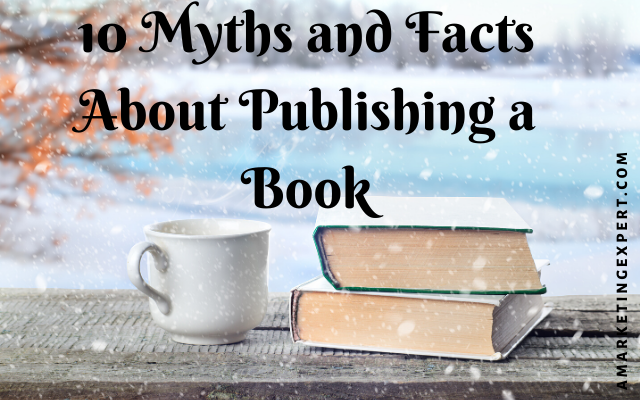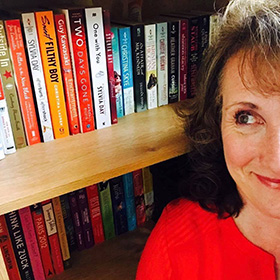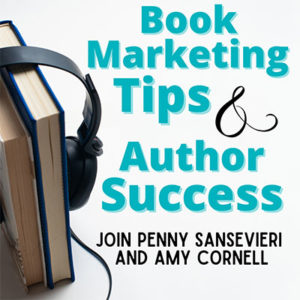I talk to a lot of authors and many come to me with questions about publishing a book the right way the first time, or publishing a book the right way the second, third, or 10th time!
The reality is the first step is coming to terms with what publishing a book is, and what it isn’t. Because once you wrap your mind around that, you’re in a much better position to create a successful author brand that will stand the test of time.
So let’s dig into the biggest myths I’ve come across that are holding a lot of good authors back:
Myth #1: I can write solely for my own gratification.
Fact: When publishing a book you must keep your market in mind. Yes, you should write something you’re interested in, because I truly believe fans make the best authors, but in this day and age you can’t afford to “wing it” when it comes to who your market is.
I assure you that if you write for a very specific genre and audience you’ll hit that bestseller list much sooner.
Myth #2: I can make my own cover.
Fact: You can’t. It’s really that simple. Because even if you have a background in graphic design or marketing, we’re too close to our own work to be truly objective.
Many authors forget that most shopping is done online, so they design their own cover and it looks pretty good pulled up on their computer – but once it shrinks down to Amazon search result-size a lot of the impact is gone. And that’s potentially losing you dozens if not hundreds of sales.
I don’t design my own covers, and neither should you. Find someone with a solid portfolio for your genre or topic and work with them. The added bonus is you’ll hopefully develop a good working relationship with them, and they can help you establish a true brand for your books.
Myth #3: I can edit my own book.
Fact: You can’t. It’s really that simple. Do you see a pattern here? Publishing a book is recognizing it takes a village of skilled individuals and the sooner you embrace that, the better off you’ll be.
Much like doing your own cover, you’re too close to your own work to do your own editing, so don’t waste all that hard work you put into creating the book in the first place – give it a chance to be its best by getting a second and even third opinion in the form of good editors.
Myth #4: I can write my own book description.
Fact: Okay, I’ll lay off the repeats, but you really shouldn’t do this either. Again, it all comes back to how objective you can be.
And it’s not a knock against you as an author, I market books for a living and I don’t write my own descriptions in a vacuum. I always get a second or third set of eyes from people who understand who my market is and what my goals are, and their input is invaluable.
Myth #5: I don’t need a website.
Fact: Okay, you don’t need a website when you’re first publishing a book, so if your budget is tight I’d actually encourage you to have a top notch Author Central page and invest in some marketing efforts to start getting some traction for your book, and save your website to coincide with your second release.
But a website really does need to be on your short-term plan, because it’s one of the very best ways to establish your author brand and prove your staying power.
Myth #6: I think my book will be enjoyed by nearly everyone.
Fact: I hear this all the time and it drives me crazy. Similar to #1, you need to choose a market and focus on those readers specifically if you plan to make any headway.
Saying everyone will love your book gives you zero marketing focus, which means you’ll be spreading your efforts too thin, your message won’t be personal enough, and people won’t connect with what you’re offering.
Choosing an audience or market to focus on is called strategy, don’t think of it as selling yourself or your book too short. You can always build on success, but it has to start somewhere.
Myth #7: I think professional reviews matter more than reader reviews.
Fact: Professional reviews look nice and they give you some street cred, I’ll concede to that. But at the end of the day, shoppers trust other shoppers just like them, more than they do big names.
Why? Because big name reviews can be bought, and readers don’t keep track of which ones can and can’t, so they just take them all with a grain of salt.
Yes, I would encourage you to go after some big name reviews, but that should take up 5% of your marketing efforts while going after reader reviews should take up 25-50% of your marketing efforts in any given month.
Reader reviews on Amazon also help your algorithm, so don’t slow down until you’ve hit at least 50, and 100 is even better.
Myth #8: I don’t have time to market my book now, but I can do it later.
Fact: When publishing a book the first thing you should be concerned with is the marketing. If you don’t have time to market it, don’t publish it.
I can’t tell you how many authors come to me with years-old books with only a couple reviews and zero traction saying they just ran out of time.
Publishing a book is like launching a business, you’re either in it for the long haul, or it’s not the right time – choose wisely.
Myth #9: I can wait to see how this book does before writing the next one.
Fact: Nothing sells books better than books. You want as much real estate as you can get on Amazon and that means a consistent publishing schedule.
Also, consumers like a sure thing, that’s why reader reviews are so powerful. And a consistent publishing schedule is one of the best ways to communicate that you’re a sure thing, and if a reader invests in one of your books and enjoys it, there’s more coming.
Myth #10: I don’t have to spend any money on promotion.
Fact: You don’t have to spend a lot of money on promotion, that’s true. There’s a lot you can do on your own if you have the time, and the dedication to learning how to do it correctly.
But again, publishing a book is a business, and launching a business takes an investment. So, figure out what you’re good at, what you have time for, and then figure out how to hire out a few key strategies that will ensure your foundation is set up for success.
Resources and Free Downloads
Get my free Reader Profile Brainstorm
Order my personalized marketing assessment
Learn more about Author Central
Please use the social share buttons below if you learned something from this post – your shares really help educate other authors, which raises the bar for publishing and gets more books in readers hands!





0 Comments